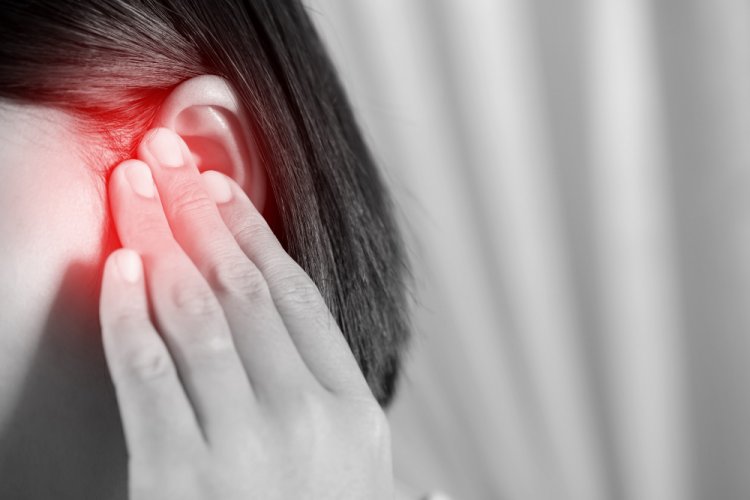Tinnitus: Understanding the Causes, Symptoms, Diagnosis, Treatment, and Prevention
Tinnitus, often described as ringing, buzzing, hissing, or clicking in the ears without any external source, affects millions of people worldwide. It can range from a minor annoyance to a severe and distressing condition impacting daily life. In this article, we delve into the various aspects of tinnitus, from its underlying causes to available treatments and preventive measures.

Understanding the Causes
Tinnitus can stem from a multitude of factors, including:
-
Noise-induced Hearing Loss: Exposure to loud noises, whether from occupational hazards, recreational activities, or even loud music, can damage the delicate structures of the inner ear, leading to tinnitus.
-
Age-related Hearing Loss: As individuals age, they may experience a natural decline in hearing ability, known as presbycusis, which often accompanies tinnitus.
-
Ear Conditions: Conditions such as ear infections, otosclerosis, Meniere's disease, and impacted earwax can all contribute to the development of tinnitus.
-
Medications: Certain medications, including some antibiotics, antidepressants, nonsteroidal anti-inflammatory drugs (NSAIDs), and chemotherapy drugs, have been associated with tinnitus as a side effect.
-
Medical Conditions: Health issues like cardiovascular disease, high blood pressure, temporomandibular joint (TMJ) disorders, and thyroid disorders can also trigger or exacerbate tinnitus.
Recognizing the Symptoms
While the hallmark symptom of tinnitus is the perception of sound in the absence of an external source, individuals may experience a range of other symptoms, including:
- Ringing, buzzing, hissing, clicking, or roaring sounds
- Difficulty concentrating
- Sleep disturbances
- Irritability or frustration
- Anxiety or depression
- Sensitivity to loud noises
Diagnosis and Evaluation
Diagnosing tinnitus involves a comprehensive evaluation that may include:
- Detailed medical history: Identifying potential risk factors and underlying health conditions.
- Physical examination: Examining the ears, head, neck, and cardiovascular system.
- Hearing tests: Audiometric evaluations help assess hearing loss and determine the frequency and intensity of tinnitus sounds.
- Imaging studies: In some cases, imaging tests such as MRI or CT scans may be ordered to rule out structural abnormalities.
Treatment Options
Treatment for tinnitus aims to manage symptoms and improve quality of life. Depending on the underlying cause and individual needs, treatment options may include:
-
Sound Therapy: Using external noise sources, such as white noise machines, nature sounds, or customized sound generators, to mask or distract from the perception of tinnitus sounds.
-
Counseling and Cognitive Behavioral Therapy (CBT): Therapy techniques help individuals develop coping strategies, reduce distress, and change negative thought patterns associated with tinnitus.
-
Medications: While there's no specific medication to cure tinnitus, certain drugs may be prescribed to alleviate associated symptoms such as anxiety, depression, or sleep disturbances.
-
Hearing Aids: For individuals with hearing loss, hearing aids can amplify external sounds, making tinnitus less noticeable and improving overall communication.
-
Tinnitus Retraining Therapy (TRT): TRT combines sound therapy with counseling to help individuals habituate to tinnitus sounds and reduce their perceived loudness and annoyance.
Preventive Measures
While not all cases of tinnitus are preventable, adopting certain lifestyle habits can help reduce the risk:
- Protecting the ears from loud noises by wearing earplugs or earmuffs in noisy environments.
- Limiting exposure to recreational activities with loud sounds, such as concerts or sporting events.
- Practicing good ear hygiene and avoiding the use of cotton swabs or other objects to clean the ears.
In conclusion, Tinnitus is a complex and often challenging condition, but with proper understanding, evaluation, and management, individuals can find relief and improve their quality of life. Seeking timely medical evaluation, exploring various treatment options, and adopting preventive measures are crucial steps in effectively managing tinnitus and minimizing its impact on daily functioning.
#TinnitusAwareness #HearingHealth #EarHealth #NoiseInducedHearingLoss #SoundTherapy #CopingWithTinnitus #HealthyHearing #TinnitusRelief #PreventTinnitus #HearingProtection #TinnitusSupport #TinnitusTreatment #CognitiveBehavioralTherapy #TRT #TinnitusPrevention #HealthyLiving #HealthAwareness #QualityOfLife #EarCare #HealthTips #MedicalAdvice #WellnessJourney
Disclaimer:
The information provided in this article is for educational purposes only and should not be considered medical advice. If you have any health concerns or are experiencing symptoms, it is important to consult with a healthcare professional, such as a doctor or clinic, for proper diagnosis and treatment. Always seek the advice of your doctor or other qualified health provider with any questions you may have regarding a medical condition. Do not disregard professional medical advice or delay in seeking it because of something you have read in this article.
What's Your Reaction?





















